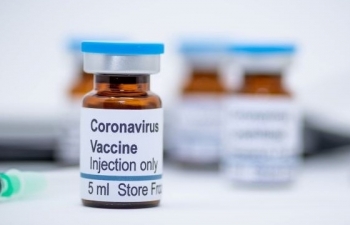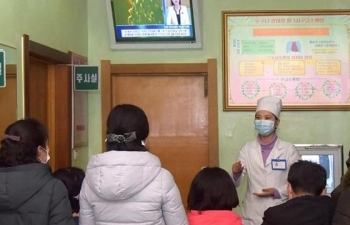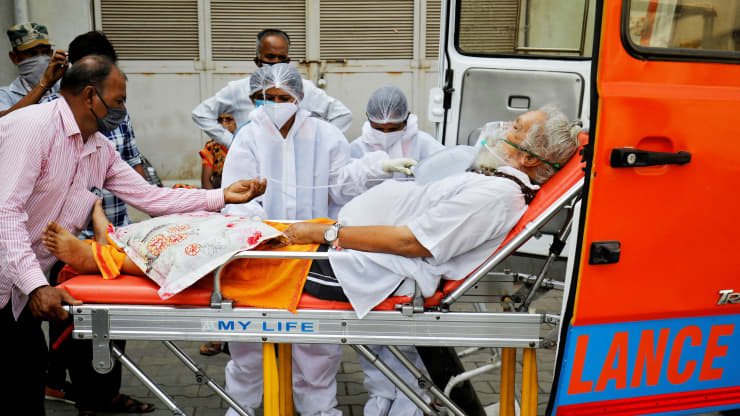Coronavirus causes damages to the kidneys, hearts
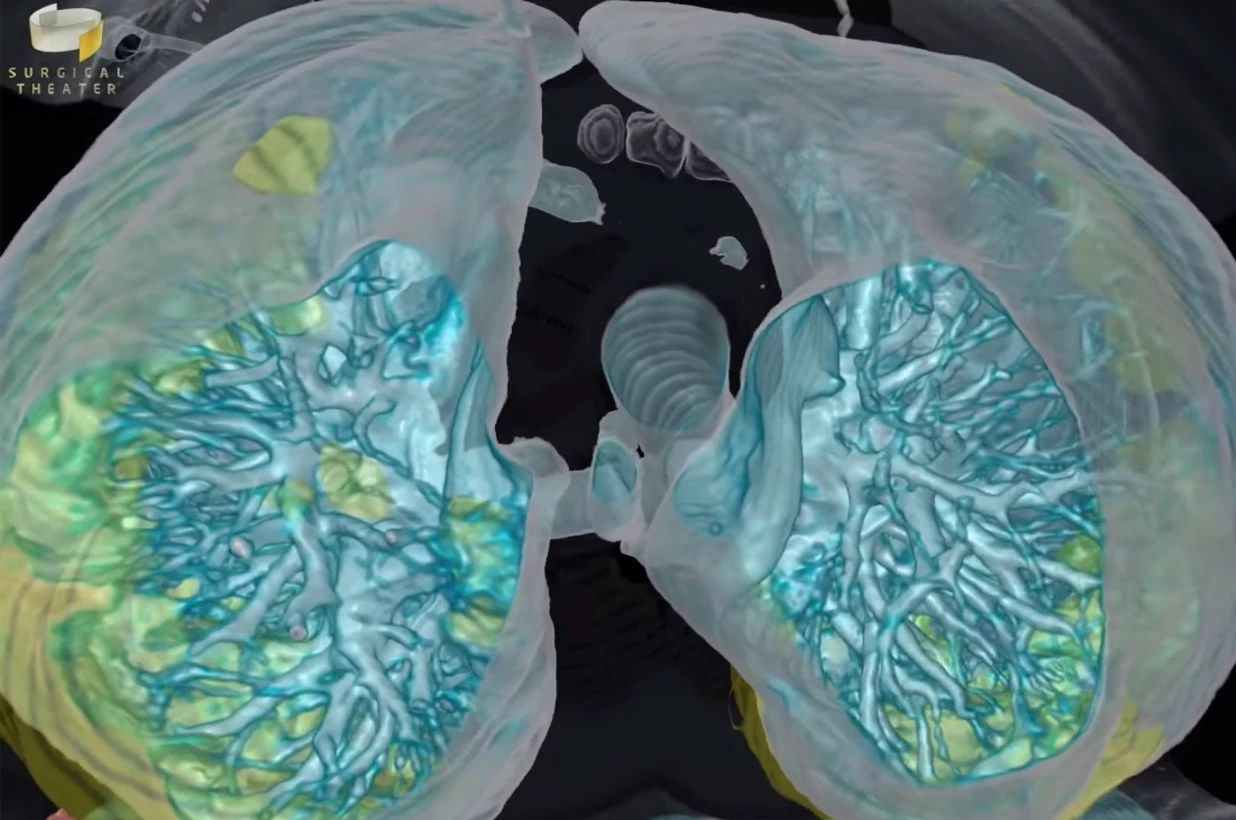 |
| A 360° Virtual Reality fly-through showing the extent of damage to the lungs (yellow) from COVID-19 for a patient seen by Dr. Keith Mortman at George Washington University Hospital. |
Clinicians around the world are seeing evidence that suggests the virus also may be causing heart inflammation, acute kidney disease, neurological malfunction, blood clots, intestinal damage and liver problems. That development has complicated treatment for the most severe cases of covid-19, the illness caused by the virus, and makes the course of recovery less certain, Washington Post cited.
The prevalence of these effects is too great to attribute them solely to the “cytokine storm,” a powerful immune-system response that attacks the body, causing severe damage, doctors and researchers said.
Almost half the people hospitalized because of COVID-19 have blood or protein in their urine, indicating early damage to their kidneys, said Alan Kliger, a Yale University School of Medicine nephrologist who co-chairs a task force assisting dialysis patients who have COVID-19.
Even more alarming, he added, is early data that shows 14 to 30 percent of intensive-care patients in New York and Wuhan, China – birthplace of the pandemic – have lost kidney function and require dialysis, or its in-hospital cousin, continuous renal replacement therapy. New York intensive care units are treating so much kidney failure, he said, they need more personnel who can perform dialysis and have issued an urgent call for volunteers from other parts of the country. They also are running dangerously short of the sterile fluids used to deliver that therapy, he said.
The virus also may be damaging the heart. Clinicians in China and New York have reported myocarditis, an inflammation of the heart muscle, and, more dangerous, irregular heart rhythms that can lead to cardiac arrest in COVID-19 patients.
| “They seem to be doing really well as far as respiratory status goes, and then suddenly they develop a cardiac issue that seems out of proportion to their respiratory issues,” said Mitchell Elkind, a Columbia University neurologist and president-elect of the American Heart Association. “This seems to be out of proportion to their lung disease, which makes people wonder about that direct effect.” |
The new virus enters the cells of people who are infected by latching onto the ACE2 receptor on cell surfaces. It unquestionably attacks the cells in the respiratory tract, but there is increasing suspicion that it is using the same doorway to enter other cells. The gastrointestinal tract, for instance, contains 100 times more of these receptors than other parts of the body, and its surface area is enormous.
In a subset of COVID-19 cases, researchers have found, the immune system battling the infection goes into hyperdrive. The uncontrolled response leads to the release of a flood of substances called cytokines that, in excess, can result in damage to multiple organs. In some severely ill COVID-19 patients, doctors have found high levels of a pro-inflammatory cytokine called interleukin-6, known by the medical shorthand IL-6.
There are also reports that COVID-19 can turn people’s eyes red, causing pinkeye, or conjunctivitis, in some patients. One study of 38 hospitalized patients in Hubei province, China, found that a third had pinkeye.
But like many of the non-respiratory effects of the virus, this symptom may be relatively uncommon – and may develop only in people already severely ill. The fact that the virus has been found in the mucus membrane that covers the eye in a small number of patients, however, does suggest that the eye could be an entryway for the virus – and is one reason that face shields and goggles are being used to protect health-care workers.
The virus also is having a clear impact on the gastrointestinal tract, causing diarrhea, vomiting and other symptoms. One study found that half of COVID-19 patients have gastrointestinal symptoms, and specialists have coined a Twitter hashtag, #NotJustCough, to raise awareness of them.
Studies suggest that patients with digestive symptoms will also develop a cough, but one may occur days before the other.
Reports also indicate that the virus can attack the liver. A 59-year-old woman in Long Island came to the hospital with dark urine, which was ultimately found to be caused by acute hepatitis. After she developed a cough, physicians attributed the liver damage to a COVID-19 infection.
Spiegel said he has seen more such reports every day, including one from China on five patients with acute viral hepatitis.
| A study published March 13 in The Journal of the American Medical Association found that older people with COVID-19 are the most likely group to contract acute respiratory distress syndrome ARDS, "likely owing to less rigorous immune response." The The Faculty of Intensive Care Medicine (FICM) also warned that other organs could also be damaged by COVID-19 after recovery. "Like many other viral conditions, the effects of coronavirus are not just limited to the lungs. The heart can also be affected, ranging from inflammation (myocarditis) to heart failure," the FICM said, according to The Sunday Times. Earlier this month the Hong Kong Hospital Authority also found that two to three people out of a group of 12 recovered coronavirus patients were left with a drop in 20% to 30% in lung function. The authority added, however, that they could do cardiovascular exercises to slowly improve their lung capacity over time. |
Business Insider cited medical analysis saying that those who recover from the most severe cases of the coronavirus may be left with serious lung damage, according to the UK's professional body for intensive-care doctors and practitioners. The Faculty of Intensive Care Medicine (FICM) warned many who contract serious cases of COVID-19 will develop acute respiratory distress syndrome (ARDS), The Sunday Times reported. The numbers are small, and it is difficult to draw broader conclusions as scientists continue to research COVID-19. It may take up to 15 years for those infected with COVID-19, and then stricken with ARDS, to regain lung function, the FICM said.
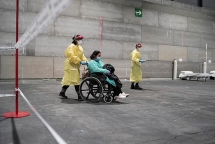 | Coronavirus doesn't affect only the lungs, new research suggests New research suggests the coronavirus can even injure healthy coronavirus patients' heart muscles or cause partial heart failure, including among people who do not present ... |
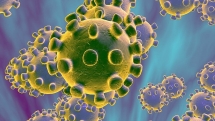 | How coronavirus damages the lungs? (Video) The Washington, D.C., hospital recently released a 3D showing extensive damage to the lungs of a generally healthy 59-year-old male with high blood pressure, who ... |
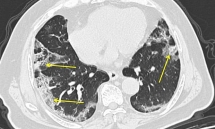 | Coronavirus: what happens to people's lungs if they get Covid-19? Respiratory physician John Wilson explains the range of Covid-19 impacts, from no symptoms to severe illness featuring pneumonia. |
Recommended
 World
World
US, China Conclude Trade Talks with Positive Outcome
 World
World
Nifty, Sensex jumped more than 2% in opening as India-Pakistan tensions ease
 World
World
Easing of US-China Tariffs: Markets React Positively, Experts Remain Cautious
 World
World
India strikes back at terrorists with Operation Sindoor
 World
World
India sending Holy Relics of Lord Buddha to Vietnam a special gesture, has generated tremendous spiritual faith: Kiren Rijiju
 World
World
Why the India-US Sonobuoy Co-Production Agreement Matters
 World
World
Vietnam’s 50-year Reunification Celebration Garners Argentine Press’s Attention
 World
World

